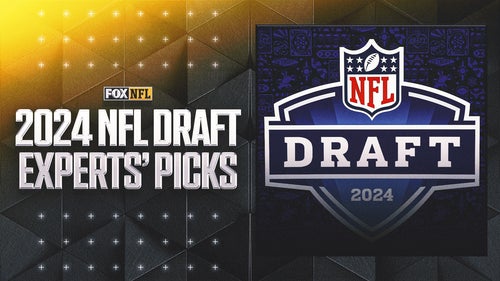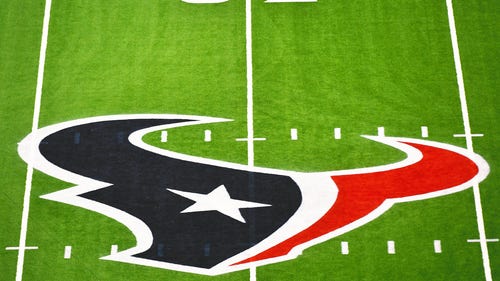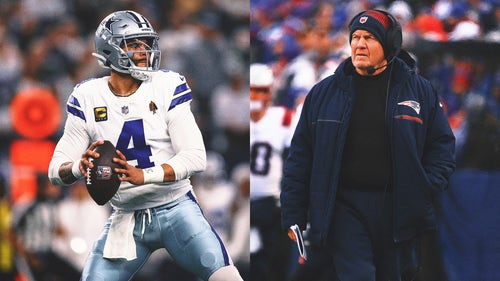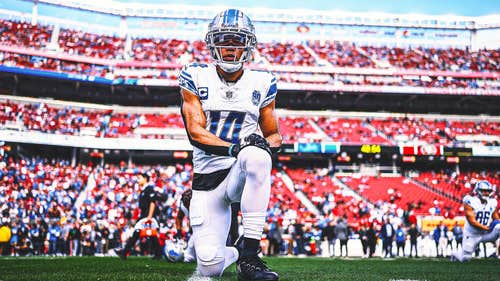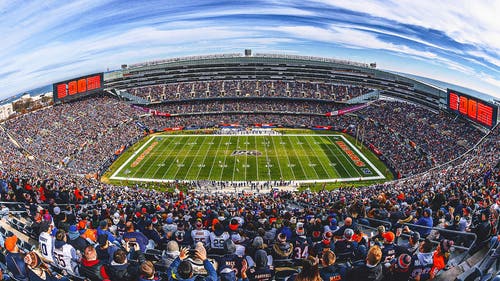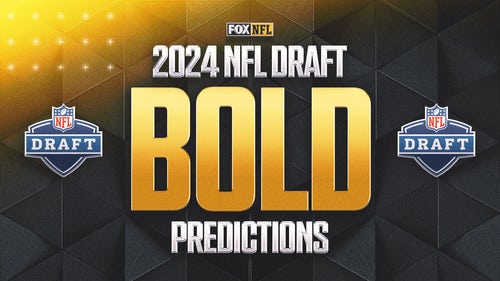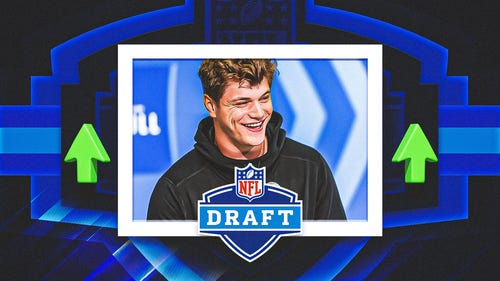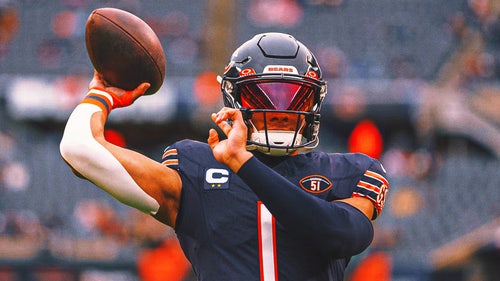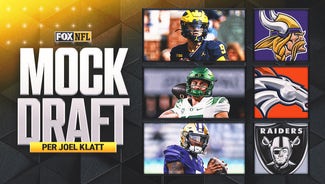
Aaron Hernandez will face mountain of evidence as trial begins

FALL RIVER, Mass. — An NFL star alleged to have lived a double life. A fiancée who may turn on him. A championship coach known as much for his recalcitrance in public as for his Super Bowl rings. Cryptic text messages, middle-of-the-night phone calls. A missing pistol.
Welcome to the complicated, convoluted murder case against former New England Patriots tight end Aaron Hernandez, accused of gunning down an acquaintance, 27-year-old Odin Lloyd, in a secluded field just days after some kind of dispute at a Boston nightclub.
Nineteen months have passed since the surreal scene outside Hernandez’s mansion in North Attleboro, Mass., as two police officers led the muscled Pro Bowler to a squad car, his arms cuffed beneath his white T-shirt.
Now, finally, his fate goes to a jury — 18 men and women, six of whom will be identified as alternates before deliberations and dismissed, who will be expected to spend six to 10 weeks listening to testimony and considering evidence.
Opening statements are expected Thursday in the case of Commonwealth of Massachusetts versus Aaron Hernandez, BRCR2013-983. Hernandez is charged with one count of first-degree murder in Lloyd's death as well as two weapons counts: illegal possession of a handgun while not at home or work, under the theory he used a .45-caliber Glock pistol in the crime, and illegal possession of .22-caliber ammunition found in his home by investigators.
Two other men alleged to have been with Hernandez when Lloyd was killed, Ernest Wallace Jr. and Carlos Ortiz, have also been indicted on murder charges in the case but will be tried separately.
Hernandez’s arrest and subsequent indictment — and his indictment in a 2012 double murder in Boston — have sparked considerable interest and intense media coverage. Lost in that, however, are some basics that will ultimately determine whether Hernandez is convicted.
First, prosecutors must convince the jury that Hernandez is guilty; he does not have to prove that he is innocent. He does not have to testify; his lawyers do not have to offer any evidence. The burden rests with the state, a point that Judge E. Susan Garsh emphasized repeatedly during jury selection.
Second, prosecutors don’t have to prove that Hernandez pulled the trigger and fired the shots that ended Lloyd’s life. Under a Massachusetts law known as “joint venture,” a person involved in a slaying can be convicted of murder — even if someone else did the actual killing.
And, third, numerous pieces of potential evidence, outlined in court documents and in arguments in the courtroom, will never go before the jury — the result of rulings that they were off limits because of problems with search warrants or because the risk they will unfairly sway the jury is greater than their value in understanding the crime.
Both sides have been mute for months, following a gag order imposed in the case after repeated efforts by defense attorneys to prohibit out-of-court discussion of the evidence. But numerous motions and statements made in court hearings paint a picture of what is to come.
The crime
At 5:37 p.m. on June 17, 2013, according to court documents, a jogger called 911 after coming upon a body in a secluded field in North Attleboro, an area surrounded by woods and mounds of gravel, asphalt and dirt. The first police investigators found a wallet in the man’s pocket that identified him as Lloyd. They also discovered a set of keys to a rented Chevrolet Suburban in his pocket. A phone call to Enterprise Rent-A-Car provided detectives with the name of the man who had signed for that car: Aaron Hernandez, the star tight end of the Patriots whose home was a half-mile away by road — even closer in a straight line.
The investigation had its focus.
Over the coming days, detectives collected voluminous cell phone records — both texts and calls — and numerous pieces of surveillance footage.
From all of that, they have alleged that Hernandez summoned Ortiz and Wallace, two associates from his hometown of Bristol, Conn., to his North Attleboro home late the night of June 16, 2013, and simultaneously made plans to meet with Lloyd. Hernandez then allegedly drove the other two men to the Dorchester neighborhood of Boston, picked up Lloyd and returned to North Attleboro.
Although prosecutors have not said who they believe fired the fatal shots, they have asserted that Hernandez "orchestrated" the killing. Ortiz and Wallace have also been indicted on murder charges but will be tried separately. The prosecution does not plan to call either as a witness in the trial.
The allegation
Lead prosecutor William McCauley, who has taken numerous murder cases to trial, has a lot of evidence to work with in his quest to convince the jury that Hernandez was the "mastermind" of the murder. Based on court documents filed in the case and on statements McCauley has made in court, the prosecution believes that the root of Lloyd’s death was planted three days earlier at a Boston nightclub.
On June 14, 2013, Hernandez and Lloyd went out to a Boston nightclub called Rumor.
At some point, according to motions filed by prosecutors, there was a dispute, and Hernandez went to his car and grabbed a gun.
In a court filing, prosecutors wrote that testimony before the grand jury that indicted Hernandez led to the inescapable conclusion “something happened at the club that caused Hernandez to arm himself.”
The two men ended up at an apartment that Hernandez rented a few miles from his home — a spot described as his “flop house.”
Two days later, prosecutors allege, Hernandez began a series of communications that set in motion Lloyd’s murder.
At 9:02 p.m. on June 16, 2013, according to court documents, a text sent from Hernandez to Wallace read: “please make it back cuZ I’m Def trying to step for alittle.” Three minutes later, according to court documents, a second text was sent from Hernandez’s phone to Lloyd: “I’m coming to grab that tonight u gon b around I need dat and we could step for a little again.”
Over the next 5½ hours, numerous texts and calls were sent back and forth among the key players, and numerous surveillance camera images captured Hernandez, Ortiz and Wallace at his home, stopping at a filling station, picking up Lloyd in the Dorchester section of Boston, blowing through a toll booth without paying the $1.25 toll, and driving into the industrial park where Lloyd was killed.
Hernandez’s own home security system also captured images that prosecutors allege was the player holding a dark handgun in his house just minutes after Lloyd was shot a short distance away.
And although detectives have not located the weapon they believe was used to kill Lloyd, they know it was a .45-caliber Glock from the shell casings discovered at the scene, and in the rented Nissan Altima that prosecutors allege Hernandez used in the killing.
In that Nissan, other evidence discovered by an Enterprise manager is expected to be used by prosecutors to tie Hernandez to the crime, including an empty Vitamin Water bottle that was identical to other bottles found in his home.
The defense
Hernandez is represented by top-notch attorneys. Charles Rankin and James Sultan are both graduates of Harvard Law School and have handled numerous high-profile criminal cases. Michael Fee is a former federal prosecutor who is highly experienced in complex white-collar cases, and he has represented Hernandez from the first moment police officers knocked on Hernandez's door to ask him about Lloyd's murder.

James Sultan (left) and Charles Rankin form the nucleus of Aaron Hernandez's defense team.
Their initial tack was simple: Chip away at as much potential evidence as possible long before the point a jury was seated. And they were remarkably successful: Garsh found there were problems with search warrants that led her to toss out .45-caliber ammunition that was found at an apartment Hernandez rented, a loaded .45-caliber Glock magazine found in a Hummer registered to the former player, multiple cell phones and iPads taken from his home and even text messages Lloyd sent to his sister in his last minutes of life.
They also fought successfully to bar jurors from learning about other “bad acts” Hernandez has been implicated in, including the double murder in Boston, an incident in Florida in which he allegedly shot a friend in the face after a dispute at a nightclub and a gun-trafficking investigation in which he allegedly shelled out $15,000 to have multiple weapons purchased in Florida and spirited to him in Massachusetts.
The argument over those incidents, carried out at a hearing in December, led Sultan to accuse the state of making leaps from thin strands of evidence.
“If the commonwealth thinks Aaron Hernandez murdered Odin Lloyd, prove it,” Sultan said, arguing that allowing the jury to hear about those other incidents would unfairly taint his client.
In court documents, they listed one witness they plan to call — an expert on the effects of the drug PCP and marijuana on human behavior. It has been rumored that Hernandez used PCP, and detectives found a marijuana cigarette on the ground near Lloyd’s body and a bowl containing suspected marijuana residue in a safe in Hernandez’s home.
They did not, however, file any documents asserting that they planned a “diminished capacity” defense.
Now Hernandez’s lawyers have a different job before the jury: attack the prosecution’s case at each turn, provide explanations that contradict the state’s assertions where they can and argue that the evidence doesn’t support the charges.
A motion filed last May seeking the dismissal of the murder charge against Hernandez may have provided a preview. In it, his lawyers argued that there was “no forensic evidence presented linking Hernandez to the shooting, no eyewitness testimony, no inculpatory statements by Hernandez and no evidence that Hernandez had any motive to kill Lloyd.”
“Basically,” his lawyers wrote, “all that the Commonwealth showed the grand jury is that Hernandez was in a car with Lloyd and several other individuals shortly before Lloyd was shot to death.”
The Patriots

Patriots owner Robert Kraft and coach Bill Belichick may both end up having to testify at Hernandez's trial.
One of the more intriguing aspects of upcoming testimony is the fact that prosecutors have listed owner Robert Kraft, head coach Bill Belichick and several other officials from the Super Bowl-bound Patriots as witnesses for the state. The others on the witness list are assistant special teams coach Joseph Judge, director of player development Kevin Anderson, strength and conditioning coach Harold Nash Jr., and assistant strength and conditioning coach Moses Cabrera.
Although Judge lives near Hernandez’s home — detectives knocked on his door in the first hours of their investigation — it’s not clear what testimony the others might offer
It is a safe bet, however, that the limited number of seats in the courtroom will be at a premium if and when Kraft and Belichick are called to testify.
And it’s technically possible — but probably not likely — that could happen while the team is enmeshed in preparations for its Feb. 1 showdown with the Seattle Seahawks in Arizona.
The wild card

The biggest question heading into the trial is this: Will Shayanna Jenkins end up testifying against her fiance?
Shayanna Jenkins is Hernandez’s high school sweetheart, his fiancée, and the mother of his now 2-year-old daughter.
Prosecutors have alleged that Hernandez sent a text message to Jenkins the day after Lloyd was killed that read: “Go in back of the screen in movie room when u get home an there is the box avielle likes to play with in the tub jus in case u were looking for it!!!! Member how u ruined that big tv lmao WAS JUST THINKIN bout that lol wink wink love u TTYL ..... K”.
Prosecutors have asserted that was a coded message directing Jenkins to get rid of the murder weapon.
A short time later, prosecutors have alleged, Jenkins took a heavy object, such as a gun lock box, out of the home inside a trash bag, put it in the trunk of her sister’s car and drove away. She was gone a little more than a half hour, and when she returned the trash bag and the object inside it were no longer in the car, according to court documents.
Jenkins was later indicted on a perjury charge, alleging that she lied to a grand jury about getting rid of the gun and about what happened to other evidence in the case, including a white sweatshirt belonging to Hernandez. Previously released court documents have said Hernandez was wearing a “very light-colored or white hooded sweatshirt” at the time Lloyd was killed.
Jenkins is on the prosecution’s witness list, and McCauley has filed a petition seeking immunity from prosecution for her, signaling that she may have reached an agreement to cooperate in the case against Hernandez.
If she has, and if she tells a jury that she did, in fact, ditch the murder weapon on Hernandez’s orders, it could be a critical juncture in the case.
The stakes
If Hernandez is convicted of first-degree murder in Lloyd’s death, he faces life in prison with no chance of parole — a fate that would be stunning when considering that a little more than two years ago he was coming off a Super Bowl appearance, had a new $40 million contract in hand and was a new father.
But even if his lawyers succeed in convincing the jury that Hernandez is not guilty of murder, his legal problems won’t end.
He faces three additional firearms charges that could land him in prison for years: possession of a high-powered rifle, a high-capacity magazine and ammunition found in his home during the Lloyd investigation. Those charges will be tried separately.
He faces a civil lawsuit filed by former friend Alexander Bradley, who alleged that after an argument at a nightclub in Florida, Hernandez shot him in the face.
And he faces separate murder and assault charges in the Boston shooting, which occurred early the morning of July 16, 2012 and left two men dead and another wounded.
In that case, prosecutors have alleged that Hernandez became enraged after a man bumped him on a nightclub dance floor, spilling his drink, and failed to apologize. They alleged that later Hernandez followed the man and his friends as they drove away from the club, then pulled up next to their car at a stoplight and opened fire with a .38-caliber revolver, killing Daniel De Abreu, 29, and Safiro Furtado, 28, and wounding another man.
That trial originally was scheduled to begin May 28, but the judge there indicated recently he would push it back given the anticipated length of the trial in the Lloyd case. No new trial date has been set.






































































































































